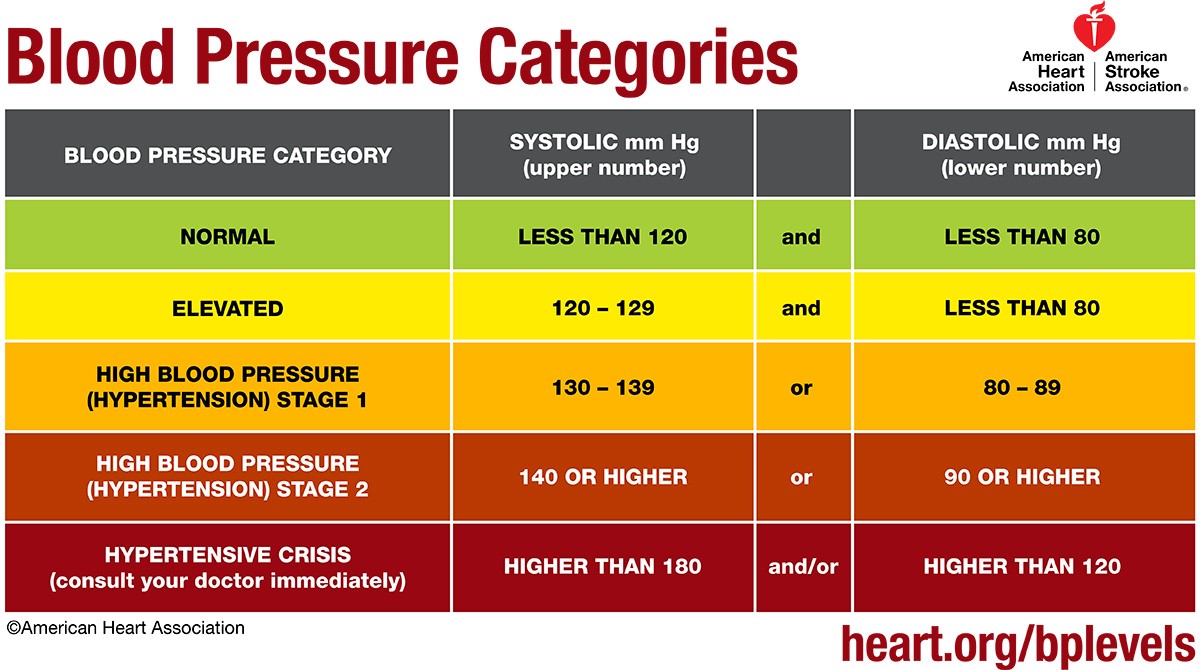Blood pressure refers to the force of blood pumped by the heart through blood vessels. If you have hypertension, or high blood pressure, it means your heart is working harder than normal. The force of high blood pressure damages the delicate tissues inside your blood vessels.
High blood pressure is very dangerous. It can cause a heart attack, stroke, damage to your organs, and other problems. Even slightly higher than normal blood pressure can shorten your life.
You are at risk of high blood pressure if you:
- Smoke
- Drink alcohol
- Are overweight
- Don’t exercise
- Eat lots of sodium (salt)
- Feel a lot stress or worry
- Have a family member with high blood pressure
- Have a chronic illness such as high cholesterol, diabetes, or kidney disease
- Are pregnant
What Do the Numbers Mean?
This chart can help you understand your blood pressure numbers.

Tips to Manage your Blood Pressure
Small changes can make a big difference. Here’s what you can do to keep your blood pressure normal: